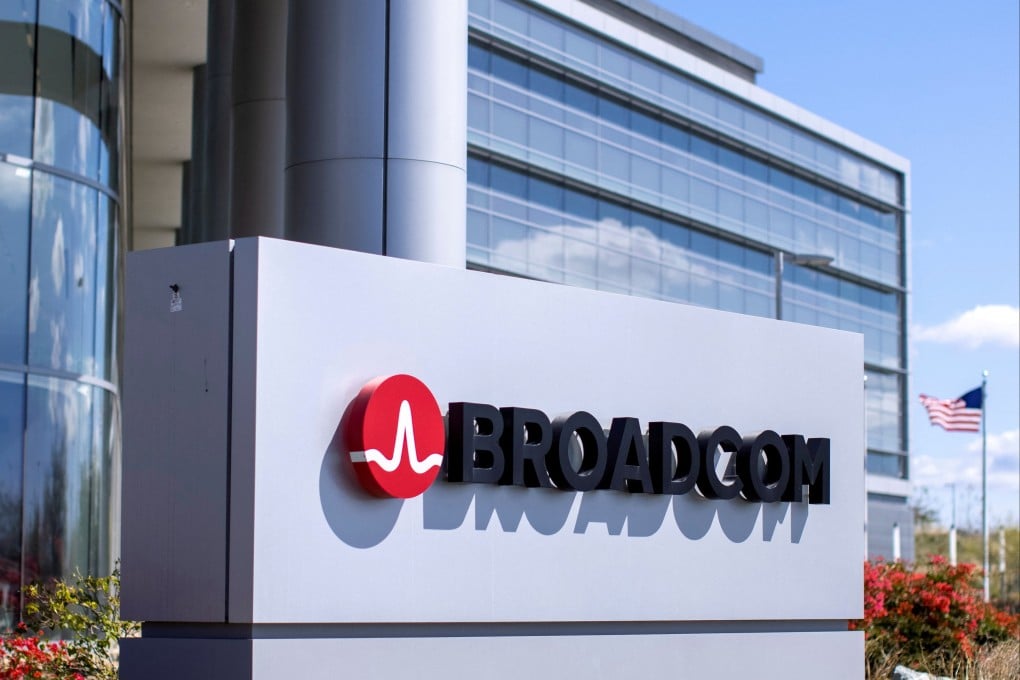Broadcom to buy VMware for US$61 billion in record chip deal
- Broadcom’s offer – coming during a market downturn for tech stocks – has the support of key VMware shareholders Michael Dell and Silver Lake
- VMware is a pioneering Silicon Valley company that was founded in 1998, the same year as Google

Broadcom agreed to buy cloud-computing company VMware for about US$61 billion, sealing one of the largest technology deals in history and advancing the chip maker’s quest to become a force in corporate software.
VMware shareholders can choose to receive either US$142.50 in cash or 0.2520 shares of Broadcom stock for each VMware share, according to a statement on Thursday. The offer represents about a 44 per cent premium to VMware’s closing price on May 20.
The deal marks the biggest-ever takeover for a semiconductor maker and extends an acquisition spree for Broadcom Chief Executive Officer Hock Tan, who has built one of the largest and most diversified companies in the industry.
VMware bolsters Broadcom’s software offerings – a key part of Tan’s strategy in recent years. He acquired corporate-software maker CA Technologies in 2018 and Symantec’s enterprise security business in 2019.
Broadcom’s offer – coming during a market downturn for tech stocks – has the support of key VMware shareholders Michael Dell and Silver Lake, and includes a so-called go-shop provision that allows VMware to solicit competing offers.
VMware will be required to pay a US$1.5 billion break-up fee if it backs out of the deal, unless it secures a superior agreement by July 5. Then the amount will be just US$750 million. Broadcom must pay VMware US$1.5 billion if it terminates the deal or if the transaction fails to get regulatory clearance.
Broadcom, one of the most valuable companies in the chip industry, sells components for everything from the iPhone to industrial equipment. But it is seeing some of its biggest growth from data centres – the massive server hubs that power cloud-computing services – and bulking up on software helps it further serve that market.